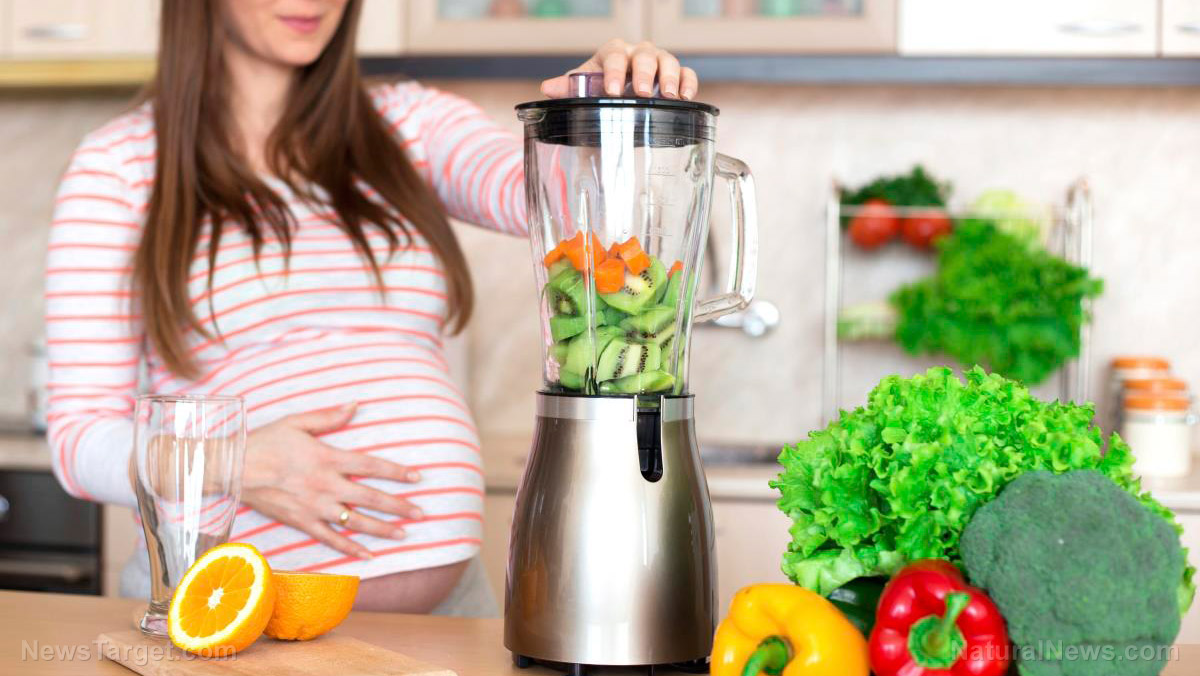Researchers recommend organic food and vitamins for pregnant women to reduce the risk of cancer and autism
10/07/2017 / By Michelle Simmons

Researchers of a new gestational analysis said that exposure to pesticides during pregnancy raises the baby’s risk of developing brain tumors. To reach this conclusion, the researchers conducted phone interviews with about 3,500 children below 15 years from two previous tests. Four hundred and thirty seven of the study subjects had brain cancer.
“Our findings add another reason to advise mothers to limit their exposure to pesticides around the time of pregnancy,” said Nicolas d’Egurbide Bagazgoïtia, lead author of the study.
The researchers discovered that children borne of women who were exposed to pesticides had a 1.4 times increased risk of having a brain tumor. They concluded that this is a result of the wide use of insecticides, which are harmful chemicals used to kill insects, in inorganic farming. In addition, the researchers said that pesticides contain cancerous compounds which harm the placenta, resulting in manifested brain tumors in childhood.
Crops that contain the most insecticides are strawberries, spinach, nectarines, apples, and peaches. On the other hand, avocados, sweetcorn, pineapples, cabbages, and onions are the least contaminated, according to the Environmental Working Group (EWG). (Related: ORGANIC SURVIVAL FOOD: Health Ranger launches non-GMO, certified organic survival food instant meals delivering real nutrition, not junk calories.)
The team concluded that pregnant women should eat more organic food and vitamins to reduce the risk of their baby developing cancer.
The study was published in the International Journal of Cancer.
The power of the elements: Discover Colloidal Silver Mouthwash with quality, natural ingredients like Sangre de Drago sap, black walnut hulls, menthol crystals and more. Zero artificial sweeteners, colors or alcohol. Learn more at the Health Ranger Store and help support this news site.
Vitamin consumption during pregnancy and autism risk
Another study from various universities and hospitals in Philadelphia, Stockholm, and Bristol recommends that consuming vitamins during pregnancy lowered the risk of children developing autism by about 50 percent.
The researchers studied the data of 273,107 mothers and children who live in Stockholm, Sweden. They recorded the mothers’ use of folic acid, iron, and multivitamin supplements during their first antenatal visit. The children were all born from 1996 to 2007. In addition, the researchers identified cases of autism spectrum disorder (ASD) in national registers.
The results of the study, published in the British Medical Journal, showed that women who did not take multivitamins, with or without iron or folic acid add-ons, had a higher chance of their child developing autism with intellectual disability compared to those who took multivitamins. Factors that may affect the results of the study were also considered by the researchers.
The findings were inconsistent when the experts examined the relationship between iron and folic acid consumption alone and the risk of autism. However, the researchers also noted that more studies are needed to support the link of multivitamin consumption during pregnancy and the risk of autism in children.
The World Health Organization (WHO) recommends pregnant women to take 30 milligrams (mg) to 60 mg of an iron supplement a day and 0.4 mg folic acid supplement per day to avoid maternal anemia, puerperal sepsis, low birth weight, preterm birth, and neural tube defects.
Autism or ASD pertains to a range of conditions characterized by difficulty with social skills, repetitive behaviors, speech and nonverbal communication, and individual strengths and differences. The most-obvious characteristics of autism show between the ages two to three, although in some instances, it can appear as early as 18 months old. According to the latest records of the Centers for Disease Control and Prevention (CDC), approximately one in 68 children has ASD and more than 3.5 million people live with the disorder in the United States.
Sources include:
Tagged Under: autism, cancer, folic acid, insecticides, iron, multivitamins, nutrition, Organic, organic food, pregnancy, prevention, supplements




















